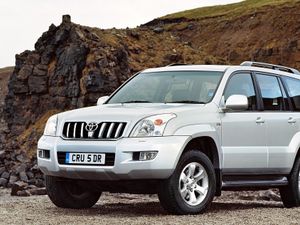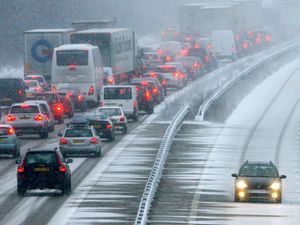How can cold weather affect my car?
A fall in temperature can make a real difference to your vehicle’s running.

Colder temperatures are chilling the UK at the moment and though it can be easy to see how these different conditions affect the roads, it can be harder to see what toll they play on your car.
However, keeping a sharp eye out for any changes could save you some problems down the line while avoiding some costly repair bills.
Battery issues

>
Battery issues are usually the first to crop up when the weather gets colder. It might be working just fine in summer and then, as the colder temperatures come in, it’ll fail. This is usually caused by a battery coming close to the end of its useful life and since lower temperatures require a battery to exert more ‘effort’ into starting a car, they can usually exacerbate the problem.
A car failing to start will likely mean that a battery’s base level of charge isn’t high enough. Thankfully, this issue can be resolved by fitting a new battery. It’s a job which can be done at home or at a garage if you’re unhappy to do it yourself.
Falling tyre pressures

>
Colder temperatures can often cause the amount of air pressure in your tyres to fall. This is particularly important to check as ensuring that you’ve got the right pressures in your tyre is crucial to their effectiveness – particularly in colder conditions.
You can use a tyre pressure gauge, or visit a petrol station – these often have air compressors outside them. Check your pressures and top them up to appropriate levels as given by the vehicle’s manufacturer.
Spark plugs misfire

>
Cold weather can put added stress on particular parts of an engine and one of the first to go is usually the spark plugs. If they do, the engine might struggle to turn over properly and, as a result, your car won’t start.
To avoid this, make sure that your car is routinely inspected and serviced and, if the spark plugs are faulty or misfiring, get them replaced.
Engine fluids can get thicker

>
If the temperature outside falls below freezing, it can on occasions cause mechanical fluids within the car to thicken. In doing so, they might not work as effectively and could cause damage to crucial parts of your car’s setup.
To avoid any potential damage, give your car plenty of time to warm up – at least 10 minutes – before driving off.
Exterior panels take some punishment

>
Roads during the winter are harsh places for cars. Grit and dirt can play havoc with a car’s exterior panels, causing additional wear and exposing key areas to the prospect of rust. If salt is left to settle, it can often ‘eat’ into panels over time.
Though it might not feel like the most pleasant of jobs during this weather, giving your car a thorough clean is one of the best ways to avoid any corrosion. Make sure you give special attention to areas such as the wheel arches, where dirt and salt can accumulate.





